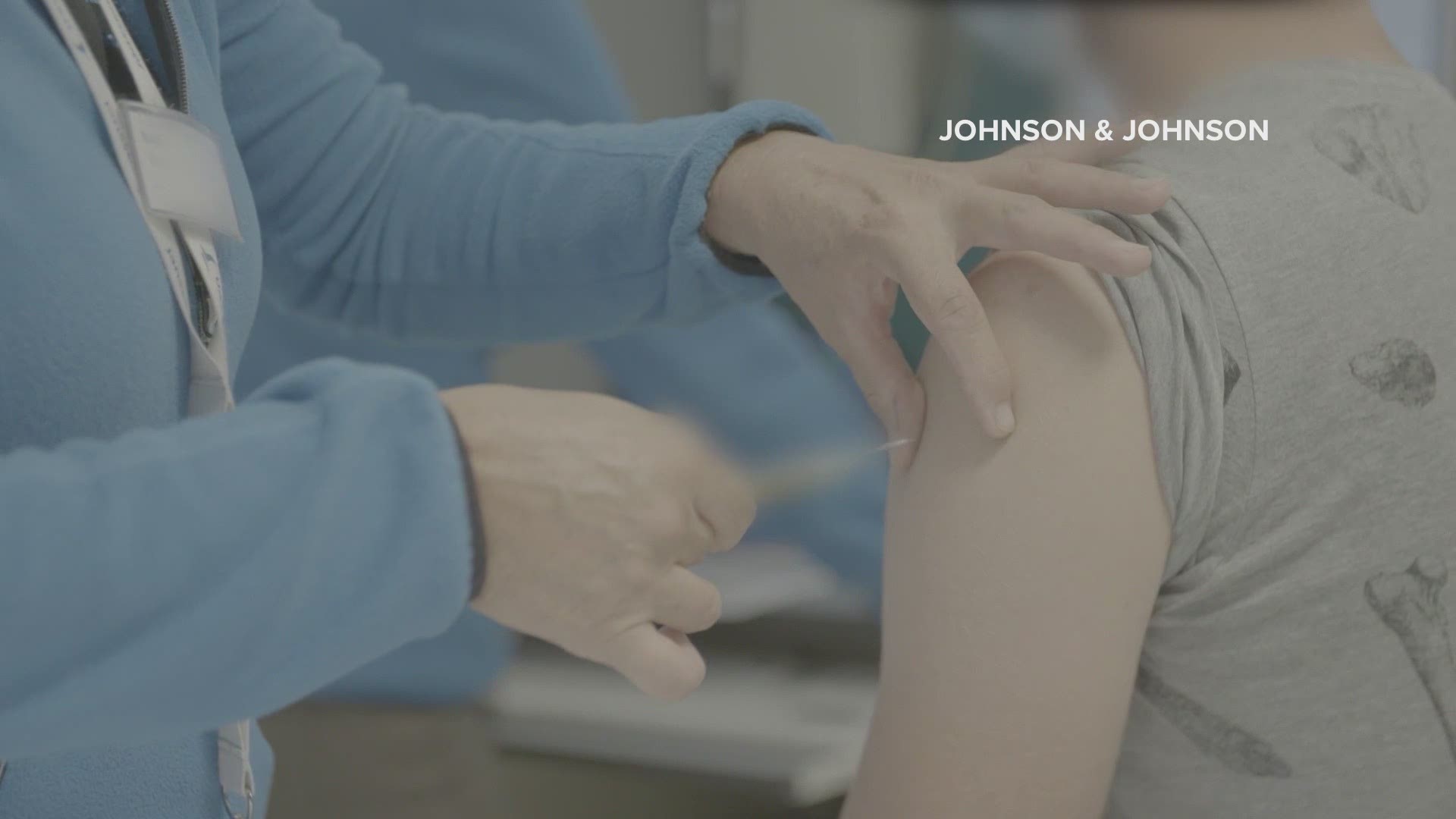PORTLAND, Maine — Johnson & Johnson announced Tuesday that its single-dose COVID-19 vaccine prevents the virus, but is less effective than its competitors.
J&J said results from clinical trials showed its single-shot vaccine is 85 percent effective in preventing severe disease and demonstrated complete protection against hospitalizations and deaths from the virus as of 28 days from receiving it.
It also provides protection against the South Africa variant.
The single-shot doses do not require the ultra-cold freezers for storage that Pfizer and Moderna vaccines do. J&J said its dose can remain stable for two years at -20°C (-4°F), at least three months of which can be at temperatures of 2-8°C (36°F–46°F).
That is major advantage for rural states like Maine where people may live far from a mass vaccination site or major hospital.
"It's going to be so much easier to get it out there into smaller community health center and hospitals. It's going to be a lot easier to go to where people are at and vaccinate them there," said Dr. Dora Mills, Chief Health Improvement Officer for Maine Health.
The company said within a week, it will file an application for emergency use in the U.S., and then abroad. It expects to supply 100 million doses to the U.S. by June, and expects to have some ready to ship as soon as authorities give the green light.
"You want to get as many shots into arms as quickly as possible to reduce overall transmission, because the less disease we have, the less this virus will continue to mutate," said Dr. Mills.
Maine's number one barrier in the vaccine rollout is supply, and, if approved, the Johnson & Johnson version could provide a significant bump.
"This will get us into those next phases much quicker," said Mills.
These are preliminary findings from a study of 44,000 volunteers that isn’t completed yet. Researchers tracked illnesses starting 28 days after vaccination – about the time when, if participants were getting a two-dose variety instead, they would have needed another shot.
After day 28, no one who got vaccinated needed hospitalization or died regardless of whether they were exposed to “regular COVID or these particularly nasty variants,” Dr. Mathai Mammen, global research chief for J&J’s Janssen Pharmaceutical unit, told The Associated Press. When the vaccinated did become infected, they had a milder illness.
Pfizer and Moderna's two-dose vaccines have shown 95 percent effectiveness after two doses.
J&J said its vaccine works consistently in a broad range of people: A third of participants were over age 60, and more than 40% had other illnesses putting them at risk of severe COVID-19, including obesity, diabetes and HIV.
J&J said the vaccine is safe, with reactions similar to other COVID-19 shots such as fever that occur when the immune system is revved up.
While it released few details, the company said there were no serious allergic reactions. But occasionally other COVID-19 vaccines trigger such reactions, which can be reversed if promptly treated – and authorities have warned people to be on the lookout regardless of which type of vaccine is used.

